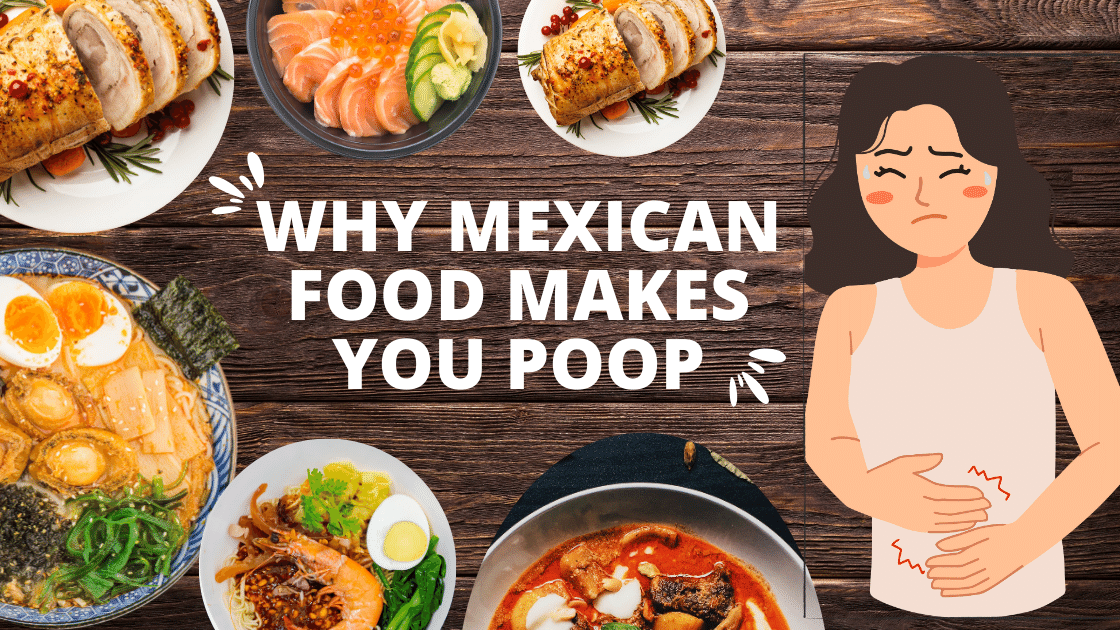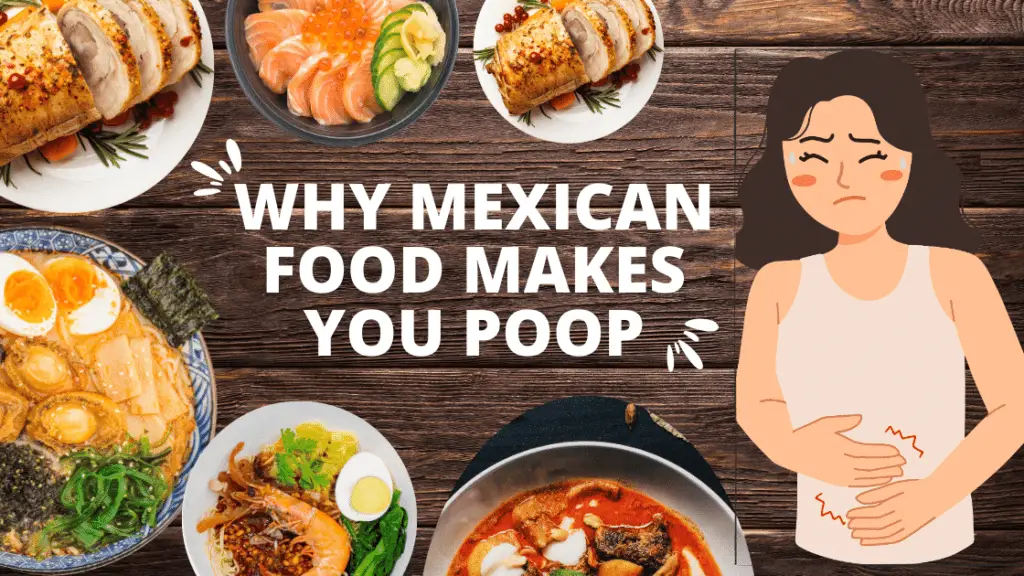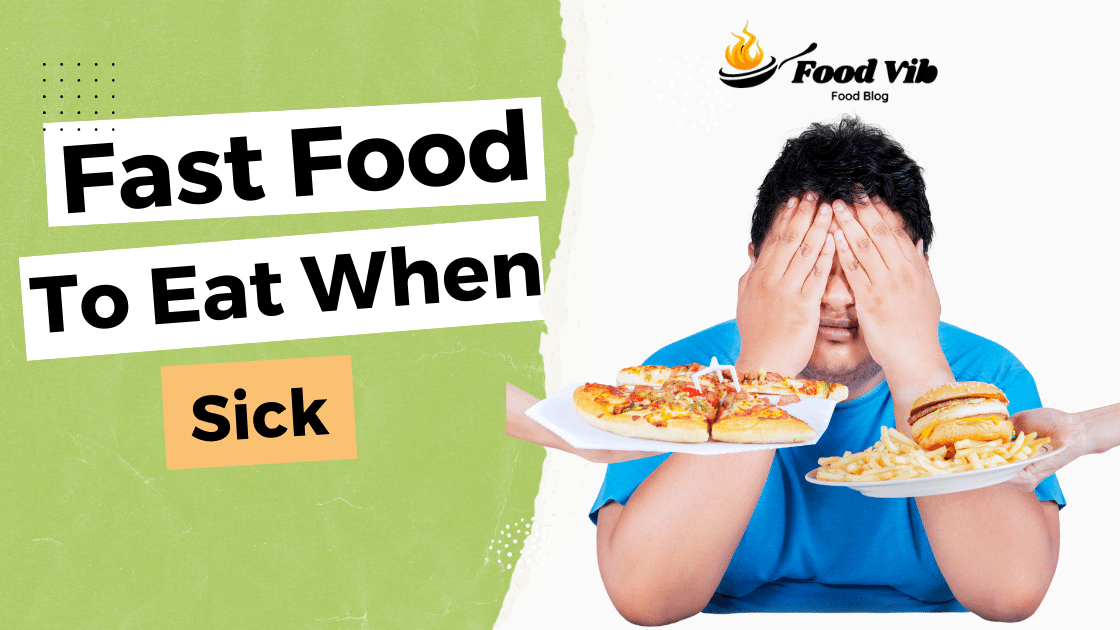10 Reasons Why Mexican Foods Make You Poop

Mexican meals are known for their delicious tastes and spices. However, they also have a reputation for causing some stomach pain. Many people think that Mexican foods make you poop due to the mix of ingredients such as beans, peppers, and spices.
Whether it’s true or not, there is no denying that these foods can have a significant effect on our gut systems. In this piece, we will study the possible reasons behind this phenomenon and provide tips on how to enjoy Mexican food without thinking about any potential bathroom problems.

10 Reasons Why Mexican Foods Make You Poop So Quickly
Mexican food is beloved globally for its strong tastes and diverse products. However, for some, indulging in Mexican food can lead to a quick trip to the bathroom. While it’s often laughed about, the fact of having quick bowel movements after consuming Mexican foods is a real worry for many.
In this piece, we’ll dig into the science behind why Mexican foods have this effect on some people. Here are 10 reasons why Mexican foods may make you poop so fast.
Spicy Ingredients:
One of the main reasons behind the quick gut response to Mexican food is the presence of hot ingredients such as chili peppers. Capsaicin, the main component in chili peppers, can upset the walls of the digestive system, leading to greater bowel movements.
Fiber Content:
Mexican foods often combine fiber-rich items like beans, veggies, and whole grains. While fiber is important for gut health, eating large amounts of it can lead to greater bowel movements as it adds bulk to stool and increases bowel contractions.
Beans:
Beans are a basic item in Mexican cooking, and they’re packed with fiber and complex carbs. However, some people may have trouble handling certain sugars found in beans, such as raffinose, which can ferment in the gut and lead to gas and bloating, causing bowel movements.
Spicy Sauces and Salsas:
Many Mexican meals are joined by spicy sauces and salsas, which often contain ingredients like tomatoes, onions, and garlic. These ingredients can be difficult to digest for some people, especially when mixed with hot peppers, leading to stomach pain and quick bowel movements.
Lactose:
Dairy goods like cheese, sour cream, and milk are widely used in Mexican food. However, many people are lactose sensitive, meaning they lack the enzyme needed to handle lactose properly. Consuming lactose-containing foods can result in diarrhea and other stomach complaints quickly after consumption.
High Fat Content:
Some Mexican meals, such as tacos and burritos, can be high in fat due to ingredients like cheese, avocado, and fried meats. High-fat meals can slow down processing and lead to constipation in some people. However, for others, it may stimulate the digestive system, causing rapid bowel movements.
Must Read: The Impact of Spicy Food On My Health Learn Now
Caffeine:
Traditional Mexican drinks like coffee and chocolate may contain caffeine, which has a laxative effect on some people. Consuming caffeine drinks alongside Mexican foods can increase the urge to pee.
Aggravation of Irritable Bowel Syndrome (IBS):
For individuals with irritable bowel syndrome (IBS), certain components of Mexican cuisine, such as hot foods, beans, and onions, can cause symptoms like stomach pain, diarrhea, and desire to defecate.
Food Sensitivities and Allergies:
Some people may have sensitivities or allergies to specific chemicals typically found in Mexican foods, such as gluten, corn, or certain spices. Consuming these ingredients can lead to stomach discomfort and cause bowel movements.
Hydration:
Many Mexican meals are served with salty ingredients like cheese, salted meats, and pickled veggies. Consuming high-sodium foods can lead to dehydration, which can in turn reduce stools and increase the frequency of bowel movements.
Must Read: The Devastating Impact of Scottish Food
The Top 5 Mexican Dishes Known for Their Laxative Effects
While Mexican food is famous for its lively tastes and diverse ingredients, some meals are notorious for their potential laxative effects. Here are five such dishes:
Chilaquiles Verdes:
Chilaquiles are a favorite Mexican breakfast food made of fried tortilla strips covered in a green or red sauce, often topped with crema, cheese, and eggs. The mix of fried tacos and hot salsa can be heavy on the digestive system, especially for those not accustomed to such rich tastes. Additionally, the use of spicy peppers in the salsa can trigger the digestive system, possibly leading to bowel movements.
Mole:
Mole is a complicated sauce made from a mixture of hot peppers, chocolate, spices, nuts, and sometimes fruits. It’s usually poured over meat such as chicken or pork. While mole is definitely delicious, its rich and hot nature can sometimes lead to stomach pain and even trigger bowel movements due to the mix of chili peppers and spices.
Pozole:
Pozole is a classic Mexican soup made with hominy (big corn kernels), meat (usually pork or chicken), and seasoned with chili peppers, garlic, onions, and different spices. The high fiber content of hominy mixed with the hot soup can have a laxative effect on some people, especially if eaten in large amounts.
Spicy Tacos:
Tacos are a staple of Mexican food, but when they’re loaded with spicy meats and salsas, they can wreak havoc on the digestive system. Spicy ingredients like chili peppers contain capsaicin, which can upset the walls of the stomach and intestines, possibly leading to diarrhea or increased bowel movements.
Agua de Jamaica:
While not a food per se, Agua de Jamaica is a famous Mexican beverage made from hibiscus flowers soaked in water and sweetened with sugar. While tasty and cooling, hibiscus has natural laxative qualities and can trigger bowel motions, especially when eaten in large amounts.
Conclusion:
In conclusion, the fast bowel movements experienced by some people after eating Mexican foods can be traced to a mix of factors, including hot ingredients, high fiber content, lactose intolerance, high fat content, coffee, and more. While Mexican food is rich in taste and variety, it’s important to understand how different products and eating habits can affect gut health.
By knowing these factors and listening to our bodies, we can make informed choices about our food habits and take steps to reduce any pain. Whether it’s moderating hot foods, going for lactose-free alternatives, or staying hydrated, there are various strategies people can employ to enjoy Mexican cuisine without having rapid stomach responses. Ultimately, finding a mix that works for each person is key to enjoying the culinary wonders that Mexican food has to offer while keeping gut comfort and general well-being.
FAQS ( Frequently Asked Questions )
What Mexican food is good for constipation?
Mexican foods that are rich in fiber can be helpful for easing constipation. Beans, whole grains, and veggies typically found in meals like black bean soup, brown rice, and vegetable-based tacos are excellent choices. Fiber helps promote normal bowel movements and aids in keeping a healthy gut system.
What foods cause bowel movements?
Foods that are high in fiber, such as fruits, veggies, whole grains, and beans, can support bowel motions. Additionally, spicy foods, like those often found in Mexican cooking, can stimulate the digestive system and lead to greater stomach movement.
Why does Mexican food make you sleepy?
The mix of carbohydrate-rich ingredients like rice and beans, along with the possible post-meal blood sugar spike and following crash, may add to feelings of tiredness after eating Mexican food. Additionally, big or heavy meals can shift blood flow from the brain to the digestive system, causing a sense of tiredness.
Why Does Mexican Food Cause Diarrhea?
Mexican food can cause diarrhea due to several reasons. Spicy ingredients like chili peppers can upset the digestive system, while high-fat content and certain hard-to-digest components may lead to loose stools. The body's response to new or unknown spices can also play a role in causing diarrhea after eating Mexican foods.
Why Eating Spicy Food Can Give You Diarrhea?
Spicy foods, including those in Mexican cooking, contain substances like capsaicin that can upset the digestive system. This soreness may lead to an increase in bowel movements and, in some cases, end in diarrhea. Additionally, spices can trigger the release of gastric juices, speeding the digestive process.
How Often Should You Be Pooping After Eating Mexican Food?
The frequency of bowel movements after eating Mexican food can change from person to person. Generally, if you experience an increase in bowel movements after consuming hot or rich Mexican meals, it's not unusual. However, if this becomes a chronic problem, it's wise to visit a healthcare worker to rule out any underlying stomach concerns.
Why does Mexican food make me gassy?
Mexican food, particularly meals with beans and certain veggies, can add to gas release in the digestive system. Beans contain complex carbohydrates that are not fully broken down during digestion, leading to the release of gas as they ferment in the gut. Additionally, the sauces and seasonings in Mexican food may also add to gas creation.
Why do fajitas give me diarrhea?
Fajitas, usually made with cooked meat, veggies, and hot spices, can cause diarrhea due to the mix of factors. The heat may upset the digestive system, while the high-fat content of some cuts of meat can add to loose stools. Individual sensitivity to certain sauces or ingredients in fajitas can also play a role in causing diarrhea.
Why do nachos give me diarrhea?
Nachos, often loaded with cheese, hot sauces, and sometimes high-fat foods, can add to diarrhea. The mix of spices, fats, and possibly hard-to-digest components may upset the digestive system and lead to an increase in bowel movements. Individual reaction to these ingredients can vary, determining the chance of having diarrhea after eating nachos.
Why does Mexican food upset my stomach?
Mexican food may upset the gut due to its heat, high-fat content, and the presence of ingredients that some people may find difficult to digest. Spices like chili peppers can upset the gut walls, while the richness of certain meals may lead to feelings of pain. Individual differences in reaction to these factors can add to stomach upset after eating Mexican food.






2 Comments